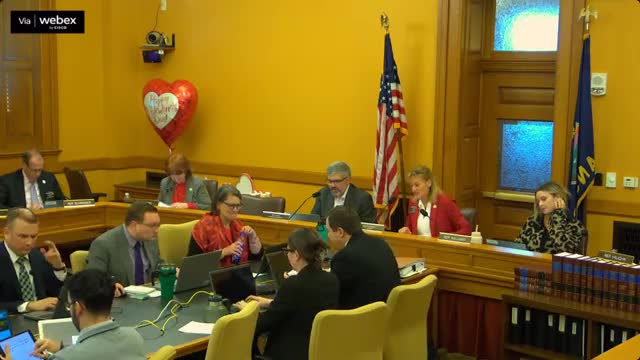Judiciary committee adopts amendments and advances Business Entity Modernization bill after debate on series LLCs
Get AI-powered insights, summaries, and transcripts
Subscribe
Summary
House Bill 2371, a broad update to Kansas business entity law including LLC code revisions, advanced from the Committee on Judiciary after lawmakers debated competing drafting approaches for series limited liability companies and adopted an amendment expanding series LLC options.
The House Committee on Judiciary advanced House Bill 2371 on Thursday after extended debate over how Kansas should update its limited liability company laws, including whether to adopt Delaware‑style conformity or to allow provisions used in neighboring states for "series" LLCs.
HB 2371 updates three business entity statutes, including Kansas's LLC act, the Business Entity Transaction Act and the Business Entity Standard Treatment Act, in a package proponents characterized as a modernizing follow‑up to changes adopted by other states. Committee adviser Jason Thompson summarized the bill as a "global update" aligning Kansas law with recent changes nationally.
Representative John Carmichael offered an amendment to remove the "series LLC" (often described in testimony as the contentious portion of the draft) from the base bill so the other updates could move forward. Carmichael said parties needed more time to reconcile differences and that the Senate or a judicial council review might resolve disputed points. The committee held a division vote on that amendment; the motion failed by voice and subsequent division, with the chair recounting a division result she said was approximately "5 to 11."
Representative Lewis then offered an amendment to add provisions permitting series within a master LLC to elect consolidated tax treatment, allow operating agreements to restrict members' voting or governance rights, and to clarify that wrongful transfers between series that aim to hinder, delay or defraud creditors would be void under existing law. Lewis said the changes were designed to provide clarity and operational efficiency for series LLCs. The lesson of the hearing was that, while Delaware is often the point of comparison, states vary in their statutory approaches.
The committee passed the Lewis amendment by voice vote and later voted to report HB 2371 favorably for passage as amended. Representative Lewis closed by noting some provisions in the amendment had been reviewed by banking representatives; Representative Carmichael said he would nonetheless oppose the package on final passage but later recorded a reluctant affirmative vote as the bill moved out of committee.
Committee members expressed differing views on whether Kansas should hew closely to Delaware's model for corporation and LLC law. Opponents of the Lewis amendment warned about unintended consequences of deviating from Delaware; supporters said limited deviations could suit Kansas's business needs.
Ending: The bill was reported favorably for passage as amended; the committee record shows a failed Carmichael amendment (division recorded) and an adopted Lewis amendment, and members signaled continued debate on series LLC drafting as the bill moves to the floor.
